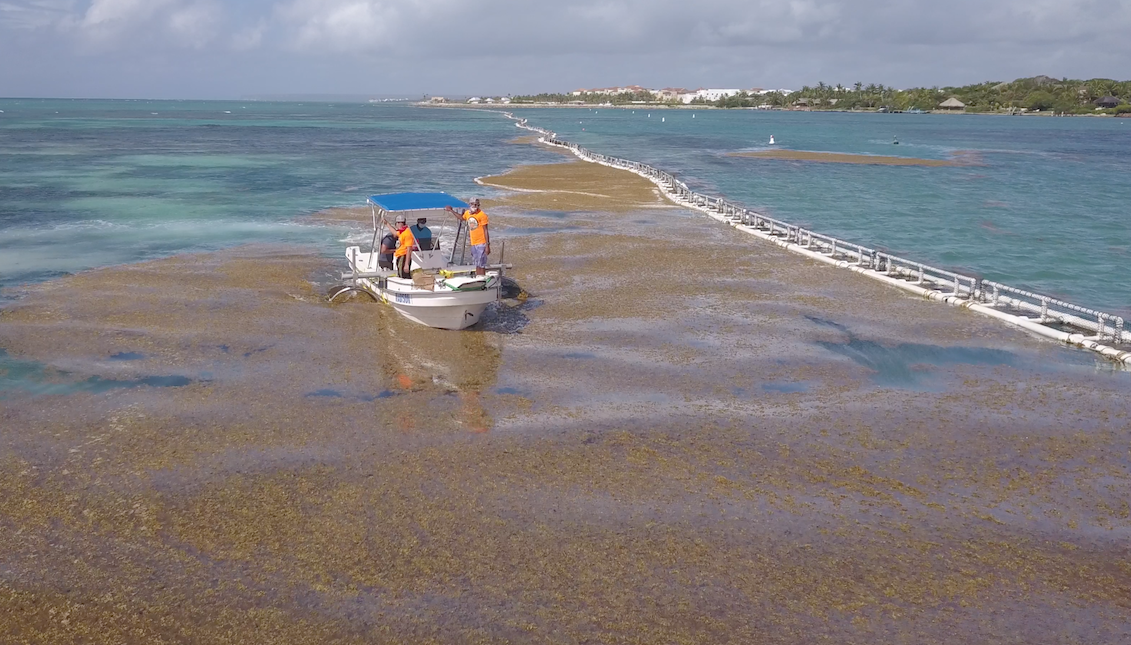
Latino Oil Portrait of Gulf Coast Neighbors
HOUSTON — A
friend with a home on the Gulf Coast pointed in a northeasterly direction. “New
Orleans is approximately over there,” he said, meaning about 250 nautical miles
away across the Gulf. Down a little to the east is Tampa. More to the southeast
is Havana. A little more to the south and southwest are Mexico’s Yucatán
Peninsula and its port city of Tampico, on the Gulf of Mexico.
Following the BP oil-spill catastrophe, many people only
began realizing this vast body of water’s relationship to other regional
places. My friend says it’s important to know who your neighbors are in the
world.
Sometimes, looking at a map is more revealing than
popular opinion. Take, for instance, Peggy West, a member of
the Milwaukee County Board of Supervisors, who caused howls when she favored a
boycott of Arizona because of its “Ask for Papers” legislation but didn’t seem
to know Arizona borders Mexico.
The
Arizona Daily Star reported Arizona’s U.S. senator, John Kyl (R) was providing
West with a map highlighting in yellow where that state shares the border with
Mexico. Needless to say, a video of West’s gaff went viral and brought lots of
yucks all around. A Christian website quoted Proverbs 17:28: “Even a fool who
keeps silent is considered wise; when he closes his lips, he is deemed
intelligent.”
However,
I doubt the Bible really meant putting a horseshoe in the boxing glove the way
Proverbs was used. Meanwhile, San Antonio’s city council, which resides about
135 miles from the border, passed a resolution condemning Arizona.
The
border matter is of course not about objectivity and good public policy. Too
many billions of dollars have been spent or squandered, and Border Patrol
guards and National Guardsmen deployed over too many years for officials to
admit misjudgments. Too many people are willing to scare themselves out of
their wits over it. There is, frankly, too much political capital to be had,
even when it comes at the price of many human cadavers in the desert.
A
kind of unreality has set in.
Thankfully,
an essay in The Independent Review, “If Mexicans and Americans Could Cross the
Border Freely,” by Jacques De La Croix and Sergey Nikiforov, is a discussion in
this regard. Those who only like to hear the “pro” side of things will get
upset hearing what’s rational about what the cons believe. But what is new and
refreshing is that the essay takes basic realities, not myths, into account.
In a
way Senator Kyl is right. Mexico, the U.S. and Canada are like three books on a
shelf right next to each other, unlike books on another shelf, or in another
section. Knowing geography is important.
One
of the problems with getting neurotic about migrating Mexicans in U.S.
territory is that it stunts discussion and reasonable scenarios. In fact, the
essayists have the guts to force the argument: the U.S. relationship with
Mexico is unique. It does not have to be confused with immigration from Italy
or Senegal or “immigration” the way most restrictionists like talking about it.
Thought of geographically, we have migration issues for the three North
American neighbors and immigration issues for the rest of the world.
The
neighboring nations would benefit from looking at how the European Union
protects national borders but allows migrations where neighboring people move
about freely. They may set up businesses, seek work, send money home, and stay
as long as practical. But European migrants are not entitled to citizenship or voting
rights in the host countries.
The
writers admit this doesn’t come up because the “American imagination may be
dealing mostly in nightmarish caricatures” and less so in practical realities.
But
given the reality voids and the silliness of name-calling by grown people,
wouldn’t you think a geography lesson would help? Knowing where you are on the
map is an advantage and not a fearful experience. As a North American, shouldn’t
you have the right to visit, live in and explore your continent where a map is
your guide?
[José de la Isla writes
a weekly commentary for Hispanic Link News Service. His 2009 digital book,
sponsored by The Ford Foundation, is available free at
www.DayNightLifeDeathHope.com. He is author of The Rise of Hispanic Political
Power (2003). E-mail him at joseisla3@yahoo.com.]









DEJE UN COMENTARIO:
¡Únete a la discusión! Deja un comentario.